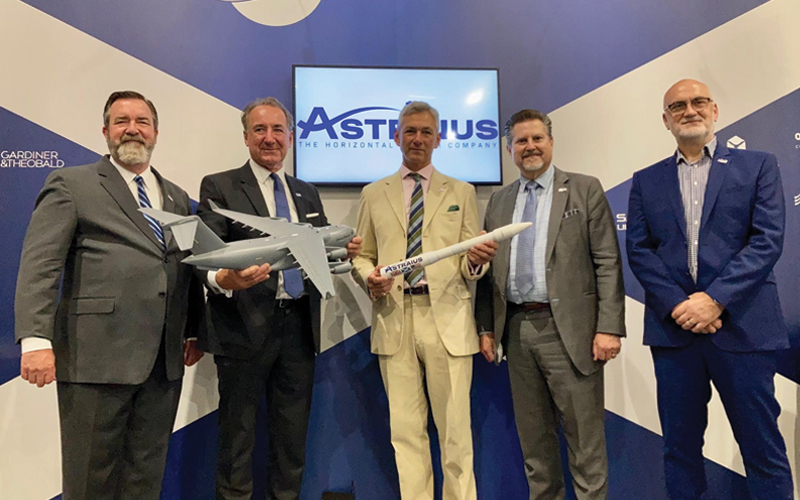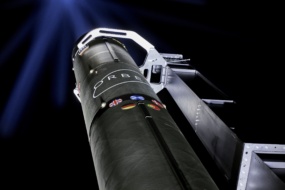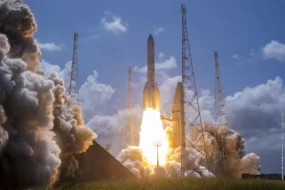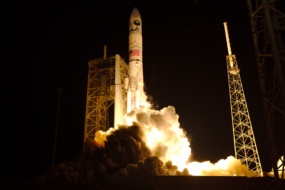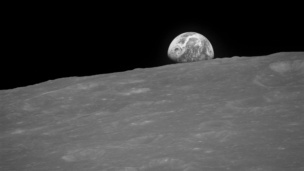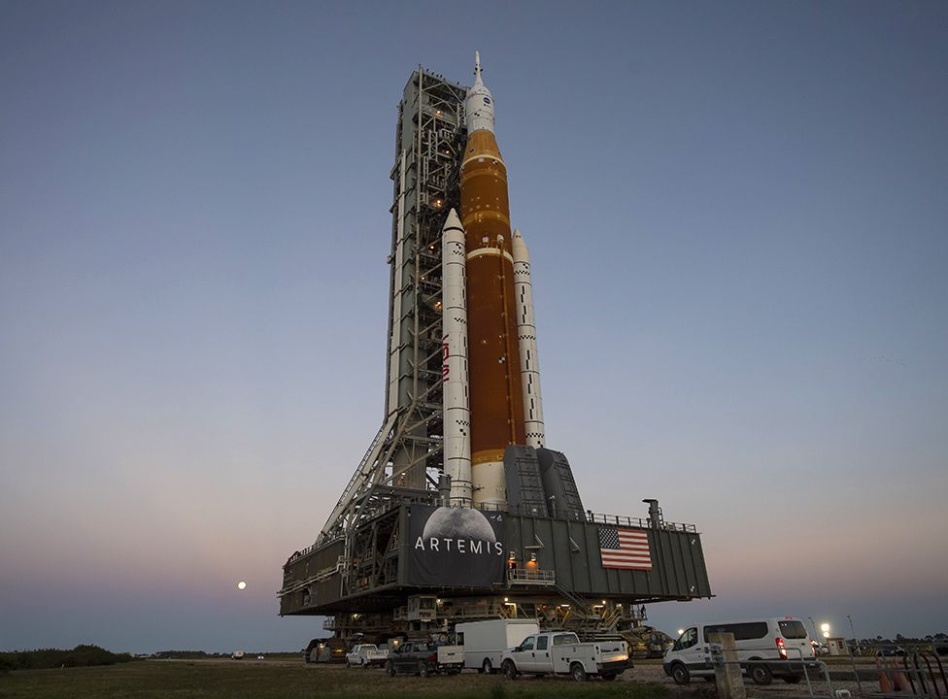UK-based horizontal launch startup Astraius has selected Northrop Grumman and Exquadrum to supply three rocket motors for its vehicle.
- Northrop will supply the first and second-stage rocket motors.
- California-based Exquadrum will supply the upper-stage rocket motor.
Buy vs. build: “From Day 1, we decided the best way to reduce risk, lower cost, and quickly deliver results for our customers was to partner wherever possible with companies who have a clear history of success,” Astraius VP of engineering and program execution Shane Clark told Payload. “Astraius will deliver an industry-leading capability by combining proven technologies and minimizing the need for new development.”
Northrop is no solid rocket motor stranger. The company supplies boosters for NASA’s big orange rocket (SLS) and the Orion spacecraft, along with commercial vehicles like Pegasus, Antares, Delta IV, Atlas V, and ULA’s next-gen Vulcan launch vehicle.
The company will supply Astraius with Orion solid rocket motors originally developed for the Pegasus launch vehicle. Variants of the motors have since been put to use on the Pegasus XL, Taurus, Minotaur, Hyper-X, Taurus Lite, and Taurus XL vehicles.
Exquadrum, although not as well known, is also an experienced propulsion provider, having built a roster of customers that includes the US Air Force, DARPA, and NASA.
The company will supply a motor based on its TopFuel technology, which utilizes “liquid monopropellant to augment and control a solid rocket motor enabling a wide range of throttleabilty and energy management capability.”
- Exquadrum developed TopFuel as part of a $15.1M DARPA contract. The technology was initially intended to be used with hypersonic boost glide weapons, but was later proposed as an integrated lunar transfer stage for NASA.
Next steps: Astraius plans to launch its three-stage rocket from an “unmodified” C-17 cargo aircraft. The smallsat vehicle will be capable of delivering 800kg to orbit. Astraius is targeting a first flight in 2024 from the Prestwick Spaceport in Scotland.
